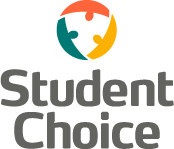Whatever one’s feelings about payday lending, the market data is clear: there is tremendous customer demand for small, short duration loans to help meet cash needs between pay checks (to learn more about the $40 billion industry and payday lending alternatives). Credit unions have a long history of responding to their members’ needs and making small-dollar, short-term loans. Many credit unions have formalized theirpractices and created programs that serve as alternatives to traditional payday lending. One such example is Carolina Trust Federal Credit Union.
CASE STUDY: Carolina Trust Federal Credit Union ($110 million, Myrtle Beach, SC)
In 1998, one of Carolina Trust’s sponsors approached the credit union regarding payday lending. The action came in response to frequent inquiries at the company’s payroll office from employees seeking paycheck advances. Since the company wasunable to provide this service, it looked to its credit union to help create a solution and meet the need. The result was a micro-loan program.
Program Structure
Carolina Trust’s micro-loan program uses the bond between the employee, the employer and the credit union to minimize risk and optimize efficiency. In order to receive a loan, the member must fill out a shortapplication form. The credit union then contacts the employer to verify current and future employment. There is no credit check or underwriting involved. Once this is completed, the member can borrow up to $300 with an 18 percent interest rate. Repaymentis made via payroll deduction over a period of up to six months, but is typically repaid within 60 to 90 days.
Attracting SEGs
After three years, Carolina Trust has introduced its micro-loan program to its other SEGs. According to CEO Jerry Miller, the credit union recognized the need and opportunity to help those members at other sponsors as well. The program has been very wellreceived, particularly with its hotel SEGs. In fact, before the credit union became community chartered, Miller successfully leveraged the program as an incentive to attract new sponsor companies and members.
Serving Members
Miller acknowledges that this product is not a moneymaker, but moneymaking is not the program’s objective. Instead, the CEO believes, It’s about serving the underserved and providing a needed serviceto members. Although the credit union already offers courtesy pay overdraft protection, Miller notes that this does not adequately meet member needs.
Carolina Trust’s typical micro-loan borrower usually has a basic saving account, but no checking account. Without the latter, courtesy pay is not a product they can use. When faced with unexpected expenses, these members have no safety net. Themicro-loan option is a way for the credit union to provide an alternative to payday lending while also offering financial counseling to help end the debt cycle.
For credit unions thinking about offering such a program, Miller says, Just do it!

